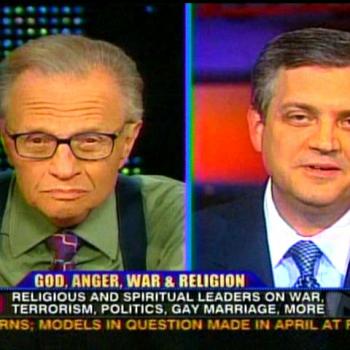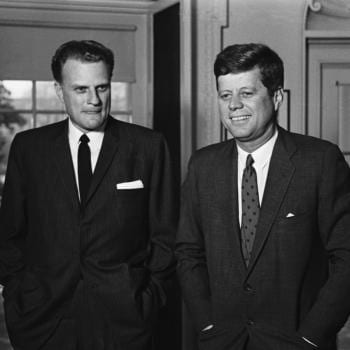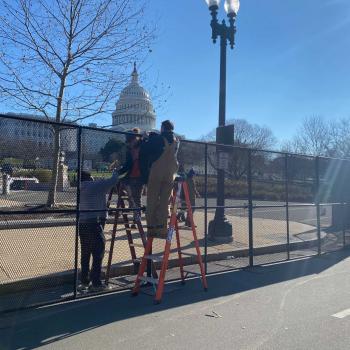One reason is that Presbyterians are nowhere near as large (and in charge) as Southern Baptists. While the SBC weighs in at roughly 15 million members (that’s pretty, pretty big), the largest Presbyterian communion in the United States is the Presbyterian Church, USA. It has a tenth of the SBC’s member (roughly 1.5 million). Meanwhile, the largest of the conservative Presbyterian denominations, the one in which the vaunted Tim Keller has his ministerial credentials, the Presbyterian Church in America, is a measly 400,000 members (about the same size as a denomination no one has ever heard of — the Wisconsin Evangelical Lutheran Synod). My own communion, the Orthodox Presbyterian Church? Forget about it. We are chugging along at 32,000 members. Microscopic. So why speak to Presbyterians when you have trouble drawing a crowd?
But Presbyterians have a better reason for not attracting politicians (that is, Presbyterians in the United States). We revised our confession of faith to make government officials feel a little less at home than they may have in the original version of the Westminster Confession (1646). In the chapter on the Civil Magistrate (23), the Westminster divines described politicians this way:
The civil magistrate may not assume to himself the administration of the Word and sacraments, or the power of the keys of the kingdom of heaven: yet he hath authority, and it is his duty, to take order, that unity and peace be preserved in the Church, that the truth of God be kept pure and entire; that all blasphemies and heresies be suppressed; all corruptions and abuses in worship and discipline prevented or reformed; and all the ordinances of God duly settled, administered, and observed. For the better effecting whereof, he hath power to call synods, to be present at them, and to provide that whatsoever is transacted in them be according to the mind of God.
Notice what this statement allows. A vice president can’t preach or baptize but he or she could call an assembly of pastors and control matters so that the right outcome prevailed — “whatsoever is transacted in them be according to the mind of God.” That’s a lot of authority — the state has the power to make sure the church conforms to the word of God. It is reminiscent of Constantine at the Council of Nicea.
But that arrangement would not work in the United States. Can you imagine Thomas Jefferson presiding over a church assembly? So American Presbyterians re-wrote that part of the Confession so it made sense of a liberal political order — no religious tests and the separation of church and state:
Civil magistrates may not assume to themselves the administration of the Word and sacraments; or the power of the keys of the kingdom of heaven; or, in the least, interfere in matters of faith. Yet, as nursing fathers, it is the duty of civil magistrates to protect the church of our common Lord, without giving the preference to any denomination of Christians above the rest, in such a manner that all ecclesiastical persons whatever shall enjoy the full, free, and unquestioned liberty of discharging every part of their sacred functions, without violence or danger. And, as Jesus Christ hath appointed a regular government and discipline in his church, no law of any commonwealth should interfere with, let, or hinder, the due exercise thereof, among the voluntary members of any denomination of Christians, according to their own profession and belief. It is the duty of civil magistrates to protect the person and good name of all their people, in such an effectual manner as that no person be suffered, either upon pretense of religion or of infidelity, to offer any indignity, violence, abuse, or injury to any other person whatsoever: and to take order, that all religious and ecclesiastical assemblies be held without molestation or disturbance.
Mike Pence had lots of reasons for not speaking at one of the Presbyterians’ national assemblies. Even better, Presbyterians had long-standing reasons for not hearing politicians.












